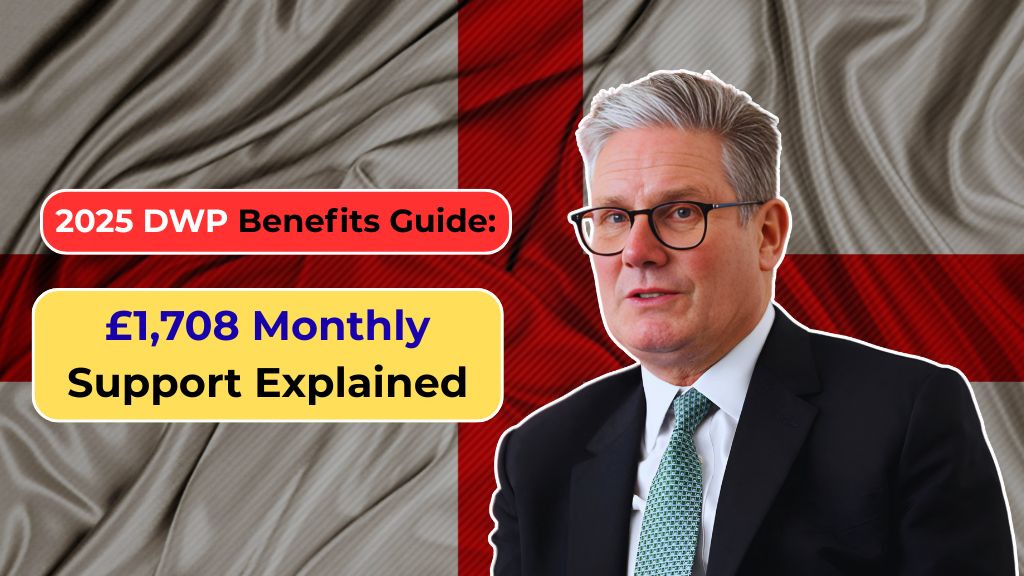The DWP is a lifeline for millions of people living in England, giving the money help they need to get by every month. In 2025, three main benefits could add up to £1,708 a month for folks who are struggling. If you meet the rules, each of these payments could help cover basic costs like rent, food, and bills.

The Three Powerhouse Benefits
1. Universal Credit: Your Foundation of Support
Universal Credit could grant you up to £736 a month. It lightens the load by helping with:
- everyday life expenses
- parts of your rent
- extra cash when you’ve got kids
2. Personal Independence Payment (PIP): Disability Support
PIP can pay up to £737 each month if you’ve got:
- a health issue lasting a long time
- a condition that makes daily tasks hard
- a tricky time getting around
3. Employment and Support Allowance (ESA): Income for the Unable
ESA may give you up to £235 a month if you:
- can’t work because of an illness
- have health hurdles that are serious
- need some cash to get by
Eligibility: Your Pathway to Support
Universal Credit
- Age 18 or older (some exceptions)
- Younger than the State Pension age
- Pass the resident and money tests
PIP
- Age 16 to the State Pension age
- Long-term health issue or a disability
- Daily living tasks or getting around are tough
ESA
- A health condition or disability that hampers work
- Pass a Work Capability Assessment
- Be put in the Support or Work-Related Activity Group
Claiming Your Benefits: A Step-by-Step Guide
- Universal Credit: Go online at GOV.UK
- PIP: Call to get the claim form
- ESA: Apply online or by phone
Pro Tips for Successful Applications
- Be precise and give complete details
- Send in strong medical proof
- Think about getting help from:
- welfare advice experts
- Citizens Advice
- groups for disability support
Financial Impact: Beyond the Numbers
The advantages of support payments reach far beyond the bank balance. For many, these sums represent a true lifeline, including:
- people with disabilities who need extra help;
- those who cannot currently work;
- families whose budgets are stretched thin.
Important Considerations
- These payments usually come through once each month.
- Sometimes, the DWP can send a backdated payment to cover missed months.
- Every situation is unique, so how the benefit fits you can vary.
Your Next Steps
- Start by confirming that you qualify for the benefit.
- Collect the paperwork you’ll need, like medical letters or financial forms.
- Make your claim only from the official DWP website or phone line.
- If things seem confusing, a specialist advisor can help clarify the rules.
Getting to grips with DWP benefits can reshape your financial future. With the chance to receive up to £1,708 each month, knowing how these benefits work is vital for keeping your household secure.
